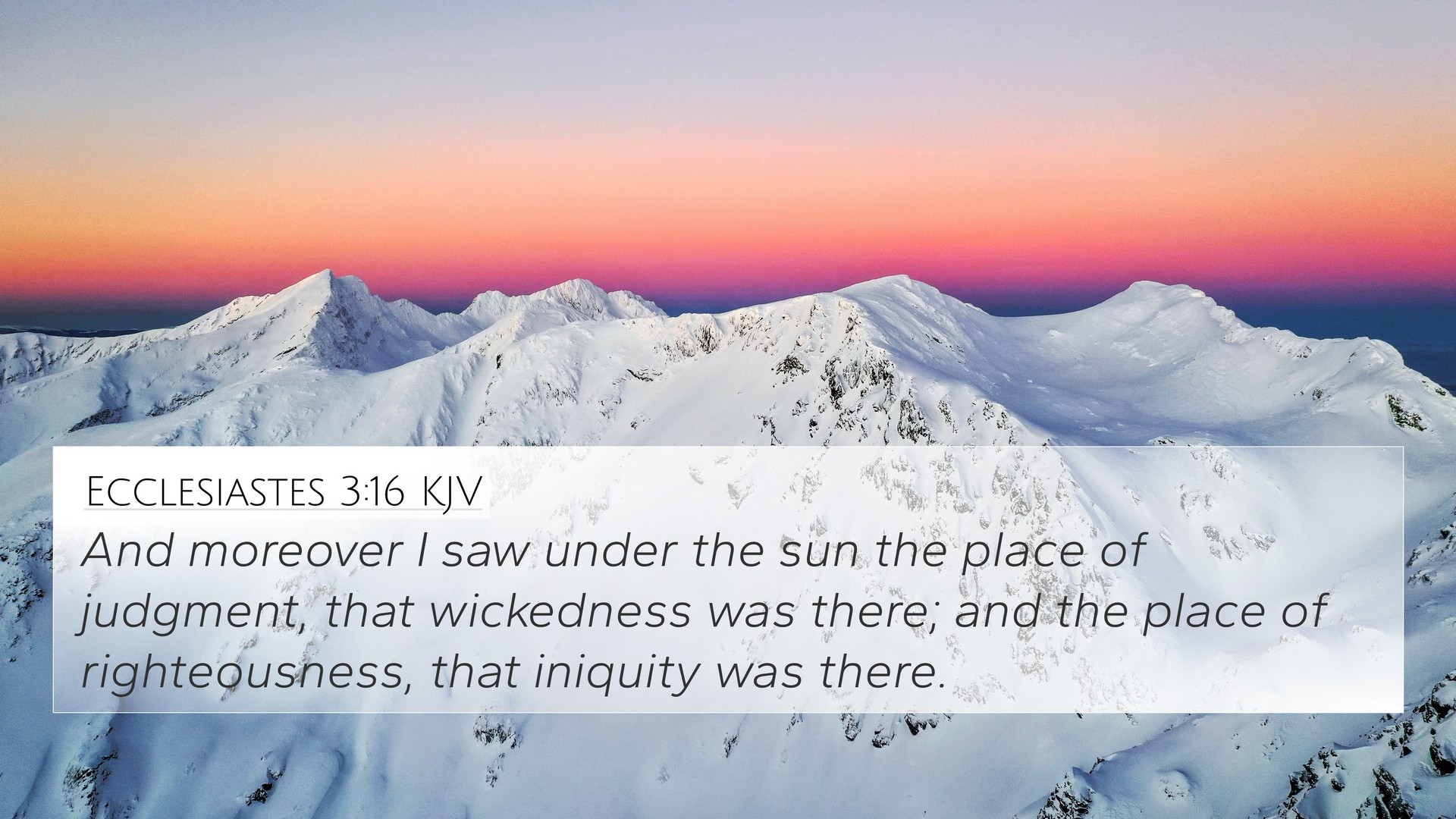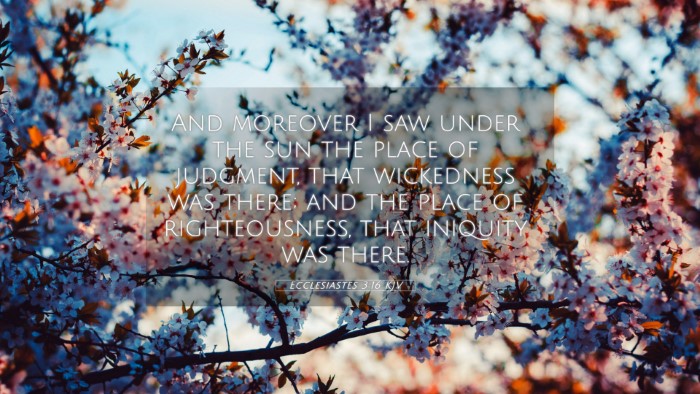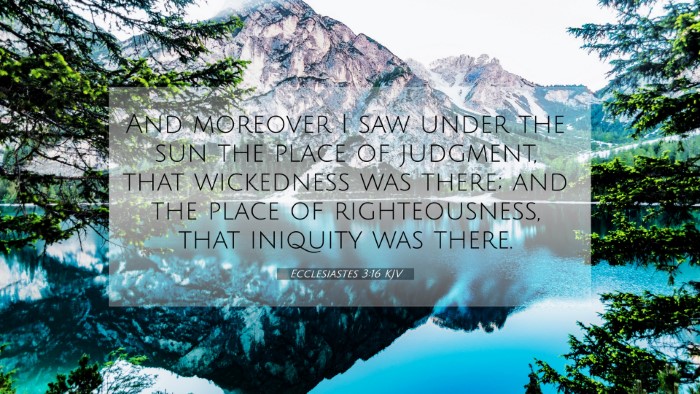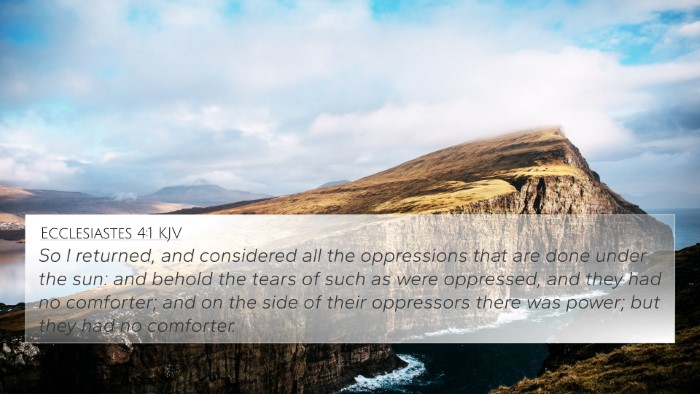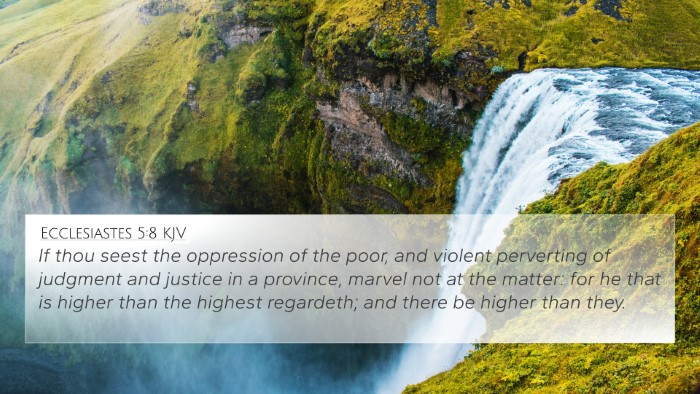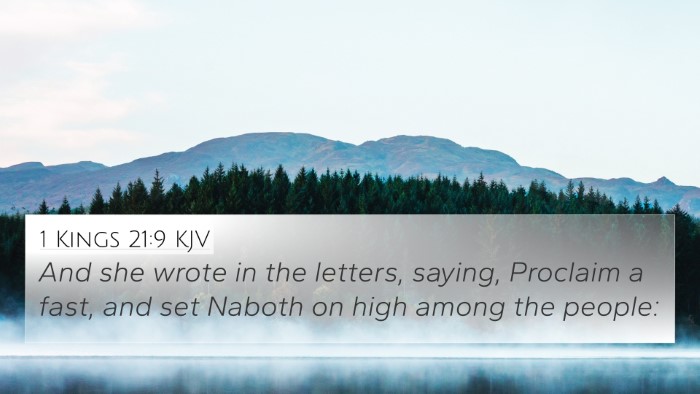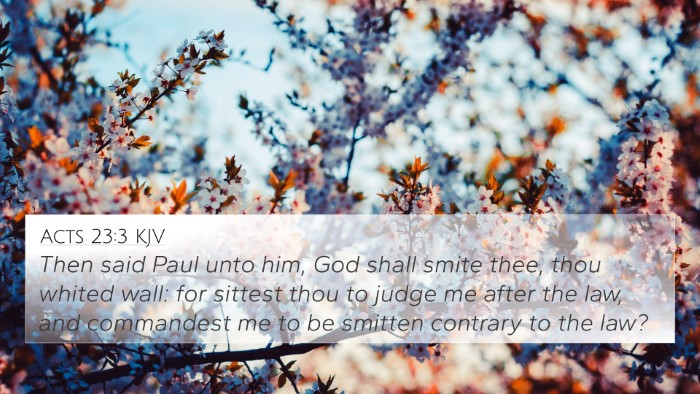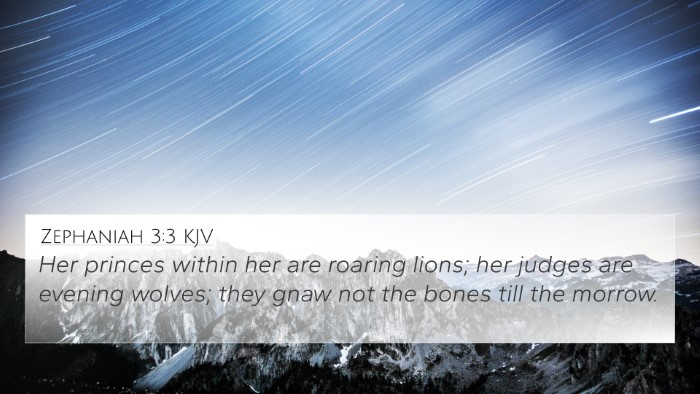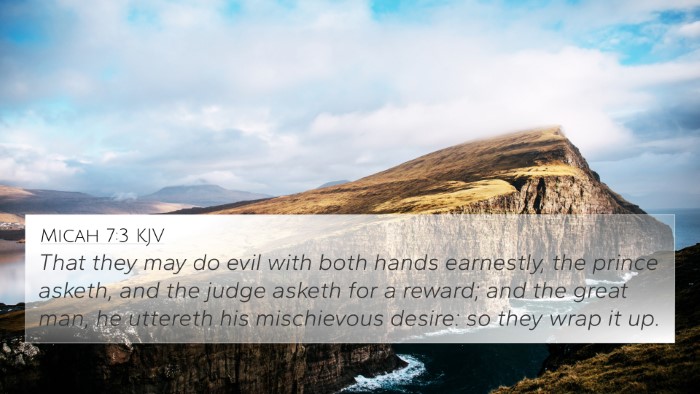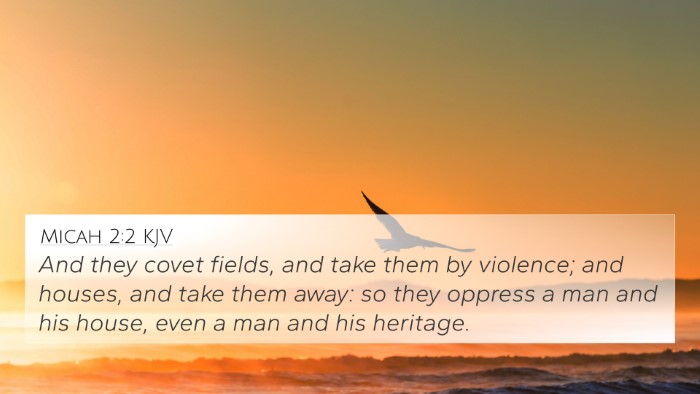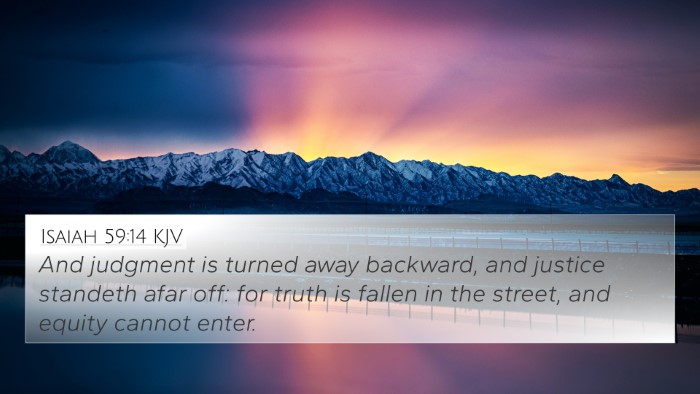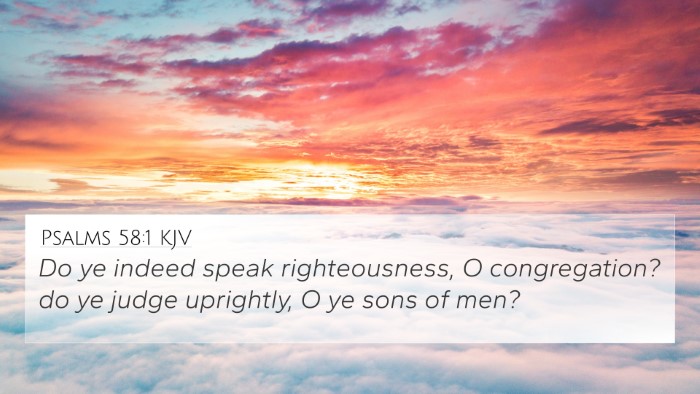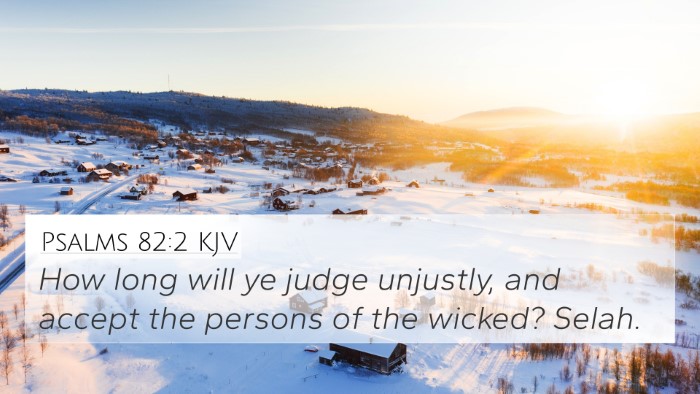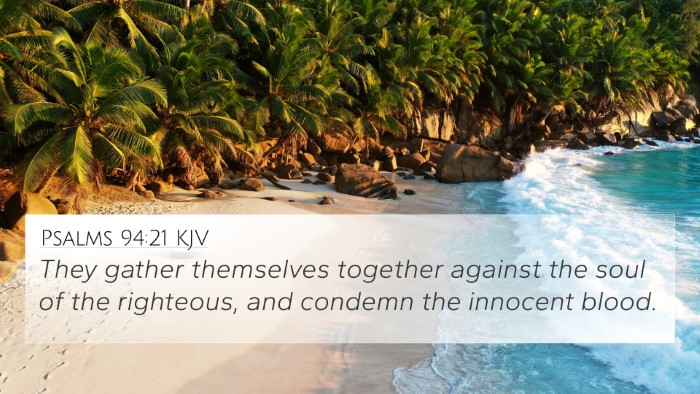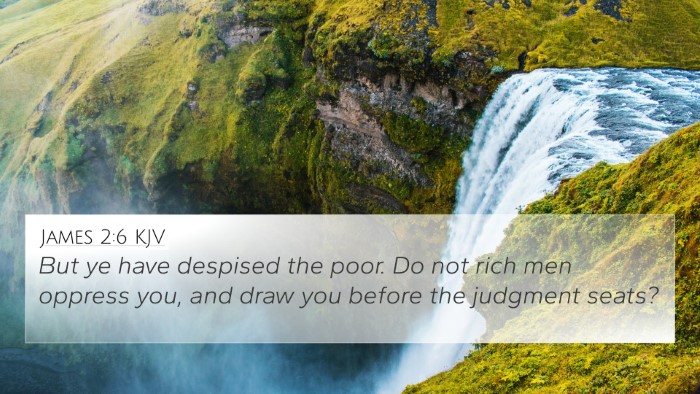Understanding Ecclesiastes 3:16
Verse: "And moreover, I saw under the sun the place of judgment, that wickedness was there; and the place of righteousness, that iniquity was there." (Ecclesiastes 3:16)
Summary of Biblical Insights
The verse from Ecclesiastes reflects on the observation that justice and righteousness are often perverted in a world that seems chaotic and unjust. The author, traditionally attributed to King Solomon, provides a somber commentary on the state of society, drawing attention to the reality that places meant for justice often contain wickedness. This perspective aligns with themes found throughout the Bible regarding the fallen nature of humanity and the presence of sin even in the most unexpected places.
Commentary Insights
Matthew Henry's Commentary
Henry observes that the verse outlines the unfortunate contrast between expectation and reality. Judgment, which should uphold righteousness, is often tainted by human sinfulness. This leads to despair, as these judgments often do not reflect divine order. He emphasizes the need for believers to recognize this disappointment but also to look beyond temporal injustice to God's ultimate sovereignty.
Albert Barnes' Notes
Barnes emphasizes the critical observation made by the Preacher—that sinful acts occur even in environments that should foster righteousness. He notes that this discrepancy serves as an insight into the human condition and suggests that one should not be overly reliant on human judgment, as it can be corrupted. Instead, believers should remember that God's judgment will ultimately prevail, contrasting earthly imperfection with divine justice.
Adam Clarke's Commentary
Clarke explains that the phrase "under the sun" refers to earthly perspectives and experiences, highlighting the limitations of human understanding. He notes that the prevalence of evil in places designated for good is a profound truth that indicates the imperfect state of human affairs. Clarke suggests that this verse urges individuals to seek a deeper understanding of divine justice and the eventual rectification of all wrongs by God.
Connections to Other Scripture
Ecclesiastes 3:16 can be cross-referenced with several other verses that further illuminate its themes of justice, righteousness, and the fallen state of humanity:
- Psalm 82:2-4 - This passage reflects God's reproach regarding corrupt judges and calls for justice for the oppressed.
- Isaiah 5:20 - This verse warns against calling good evil and evil good, highlighting moral confusion similar to that in Ecclesiastes.
- Matthew 23:23 - Jesus condemns the hypocrisy of religious leaders who neglect justice and mercy for mere formality.
- Romans 2:6-8 - Paul speaks of God's righteous judgment and the reality that those who do good will be rewarded, contrasting the wickedness seen in judgment.
- Ecclesiastes 12:14 - This verse brings the focus back to God's final judgment over all, emphasizing accountability despite worldly injustice.
- Amos 5:24 - Here, amidst societal injustice, God desires justice to "roll down like waters," contrasting with the wickedness described in Ecclesiastes.
- Hebrews 9:27 - This verse underscores the inevitability of judgment after death, linking to the broader theme of justice in the afterlife.
Conclusion
Ecclesiastes 3:16 serves as a powerful reminder of the complexities of justice in the fallen world. Through careful analysis and cross-referencing with other scripture, believers are encouraged to navigate the realities of life, understanding that while human judgments may be flawed, divine justice will ultimately prevail. This exploration into the verse opens avenues for deeper theological reflections and personal application in pursuit of righteousness amid a world laden with challenges.
Further Study and Tools for Cross-Referencing
For those interested in exploring cross-referencing methods, consider utilizing a Bible concordance or a Bible cross-reference guide to deepen understanding and facilitate comparative studies of biblical texts. These resources enrich one's study by uncovering Bible verses that relate to each other, establishing a comprehensive view of scriptural themes.
Key Tools for Bible Cross-Referencing:
- Bible Concordance - A tool to locate specific verses and their cross-references.
- Bible Cross-Reference Guide - Helps in finding thematic connections across scripture.
- Cross Reference Bible Study - Methods for conducting in-depth studies based on verse connections.
- Comprehensive Bible Cross-Reference Materials - Various studies that compile cross-references for better understanding of biblical texts.
